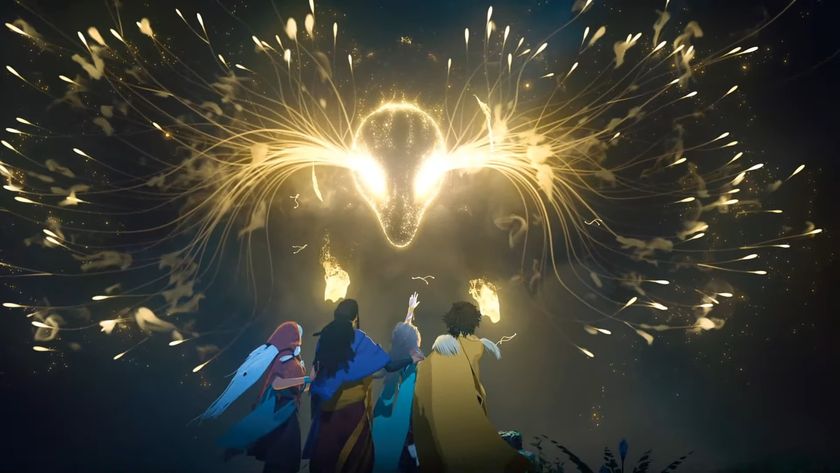
Control should be considered an action game unlike any other. It's the latest from Remedy Entertainment, a creative outfit that is instinctually driven to design obscure instances of interactive entertainment by the face of Max Payne, a studio responsible for unleashing Alan Wake and Quantum Break onto the world in 2010 and 2016. These games were, unquestionably, the most unusual action games in their respective years of release. Control would, unreservedly then, be considered the unique action experience of 2019, were it and the delightfully oblique Death Stranding not releasing just three months apart from one another.
Three months. That also happens to be the distance of time between the release of Second Sight and Psi-Ops: The Mindgate Conspiracy; two ambitiously strange games that launched 15 years ago only to become forever entwined in each other's shadow. These facts have no symmetry; they are disconnected instances of happenstance brought together by the commanding presence of time. But then everything feels that way here, in the depths of The Oldest House.
It's a sprawling game-space governed by occultist dream logic as much as it is anything else. Each room is a carefully constructed diorama that happens to embrace the fourth dimension that encompasses it, the strands of the Astral Plane invading our perception of reality as we move deeper through the shifting space. Remedy might be a studio renowned for its linear adventures, but in Control the path forward is purposefully obscured. The Oldest House is ever-changing, constantly expanding to accommodate and tightening to constrict you, seemingly at random. This is a world designed to let an ambitious studio subvert expectation and summon unique scenarios for you to battle your way through at every turn, and it's an absolute joy to experience first hand.
The Rule of Three
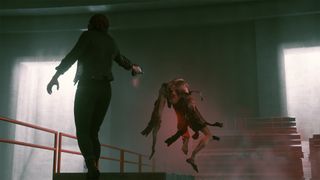
It is said by some that whatever energy a person puts out into the world, be it positive, negative or something else entirely, will be returned to that person three times over. That's the underlying principle behind The Rule of Three, a ritual that permeates all throughout the world of Control, and it's just one of the many rules and rituals working to mask the Federal Bureau of Control's many secrets. If you understand these rules, if you too can learn the rituals, you will be able to push deeper into the unknown. That, my friends, also happens to be Remedy's approach to mission progression and level design too.
Click. You're staring at a wall. Click. Now at a monolith. Click. You're striding into a motel; for a second you wonder whether you've slipped out of downtown Manhattan and stumbled in to an unseen suburb of Bright Falls, and for a second you are breathless. Click. You're walking into a break room. Click. You're falling through darkness, untethered from reality. Click. You're floating through the astral plane; for a second the architecture of the world you've left behind bends and warps around you, and for that second the light emanating from a strange object of power in the centre of the space is mesmerising. Click. The service weapon in your hand transforms into a handgun. Click. The service weapon in your hand transforms into a shotgun. Click. You blast away the head of an encroaching enemy clean off, its body erupting not with a whisper but a Hiss. With Control, Remedy is putting some seriously strange energy out into the world, and it's returning to us three times over in quite the spectacular fashion.
Want to see what Control looks like in action? Then look no further than the GamesRadar video preview, above.
This is all a part of the charm of Control. It's a game that paints a world of unknowns with broad strokes and dares you to inspect the canvas with a magnifying glass – what you discover at every turn has the opportunity to impress as much as it does surprise. Control is a narrative-led thriller that's rich with personality and character, its meticulously designed and ever-expanding spaces populated with smart enemies and engaging, well-crafted NPCs. Side-quests aren't presented as flashing exclamation points on a linear path, but hidden instances of intrigue that must be uncovered and completed as the crisis around you rages on. The action itself feels like it's delicately walking a line between Max Payne 2 and Quantum Break, trying to take the cinematic flair of the former and match it with the time-bending superheroics of the latter.
Sign up to the 12DOVE Newsletter
Weekly digests, tales from the communities you love, and more
At times it can feel relentless. Enemies aggressively attack from all angles, floating through the air and crawling around structures in an attempt to keep you dashing between points of cover and out into the open. Health is chipped away from you quickly, only recovered by siphoning the energy of the deceased Hiss enemy creatures, pushing you to always be on the offensive. It's here where you're offered the opportunity to utilise an expanding array of powers and weaponry. Your Service Weapons can be upgraded over time, giving it different firing capabilities, and imbued with modifications that can do anything from boost your health to improve your capacity to wield an array of psychic abilities. Telekinesis is undoubtedly the most impressive of those abilities, with a button press letting you rip shreds of debris from the environment before launching it at any encroaching enemy threats; objects can be hauled from the ground or torn from the ceiling, launched through the air with little restriction and little hint of slowdown.
Perfect for its time
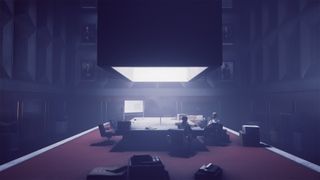
"Control is quite clearly an action game unlike any other"
I find it kind of fascinating that it's taken 15 years for a spiritual successor (of sorts) to Second Sight and Psi-Ops: The Mindgate Conspiracy to emerge, rising triumphantly out of the ashes of Free Radical Design and Midway Games' misplaced ambitions. I'm still trying to figure out whether this point of comparison is actively doing a disservice to the intricacies of what Remedy Entertainment has created with Control or whether it speaks to the studio's tenacity. To its desire to push boundaries and pave its own way forward, rather than follow in the footsteps of what other developers are doing in the action space in the twilight years of the current generation.
Second Sight and Psi-Ops were undoubtedly ahead of their time, their bold ideas struggling to shine through in an industry that just wasn't ready for them. Physics engines weren't up to the challenge of supporting the interlacing combat mechanics, unconventional narrative frameworks buckled under the weight of ambitious storytelling, and the structure of the environments never mirrored the chaos born out of the combat systems. Control, on the other hand, feels perfect for its time. For this time. It's the marriage of a complex physics-simulation with cinematic, expressive combat; complex characters find themselves wrapped in a crisis unravelling the fabric of reality around them, all as one character – you – work to understand the rules and rituals born from a parallel plane of existence that doesn't wish to be understood.
Whether Remedy can maintain this energy across the entirety of the adventure remains to be seen, but experienced in short bursts and Control is quite clearly an action game unlike any other. It's a game willing to be weird and misunderstood – to be unrelentingly strange, its intentions purposefully obscure – a rarity in an industry that is shaped by calculated risks more so than bold ideas. But that's Remedy for you, a studio that refuses to acquiesce to the whims and norms of other genre games.
Control is set to launch on August 27 for PC, PS4, and Xbox One. For more games releasing this year, check out our list of the best new games 2019.

Josh West is the Editor-in-Chief of 12DOVE. He has over 15 years experience in online and print journalism, and holds a BA (Hons) in Journalism and Feature Writing. Prior to starting his current position, Josh has served as GR+'s Features Editor and Deputy Editor of games™ magazine, and has freelanced for numerous publications including 3D Artist, Edge magazine, iCreate, Metal Hammer, Play, Retro Gamer, and SFX. Additionally, he has appeared on the BBC and ITV to provide expert comment, written for Scholastic books, edited a book for Hachette, and worked as the Assistant Producer of the Future Games Show. In his spare time, Josh likes to play bass guitar and video games. Years ago, he was in a few movies and TV shows that you've definitely seen but will never be able to spot him in.
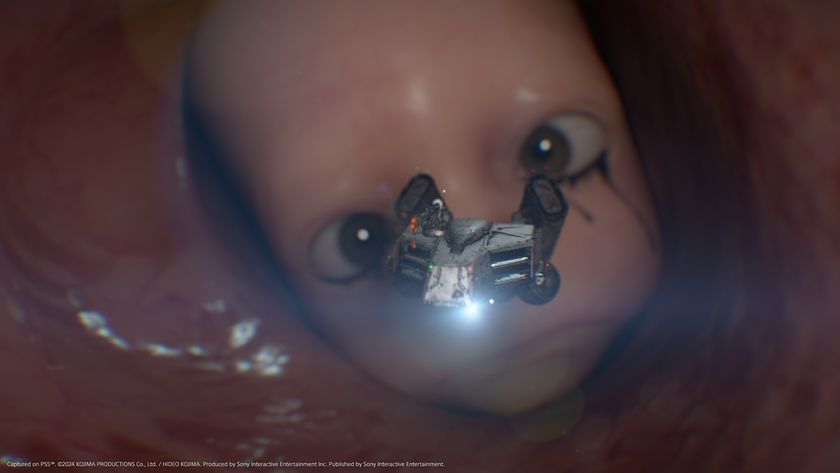
Death Stranding 2 draws ever closer as Hideo Kojima shares emotional behind-the-scenes update from "important scene" that wrapped recording for 6 voice actors at once
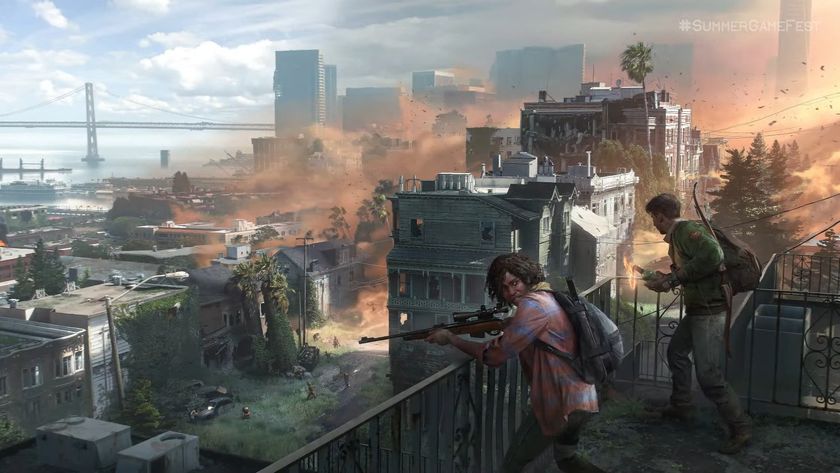
Cancelled The Last of Us Online game was "great," but former PlayStation exec says Naughty Dog had to scrap it after Bungie told them how much work it would be
Most Popular







